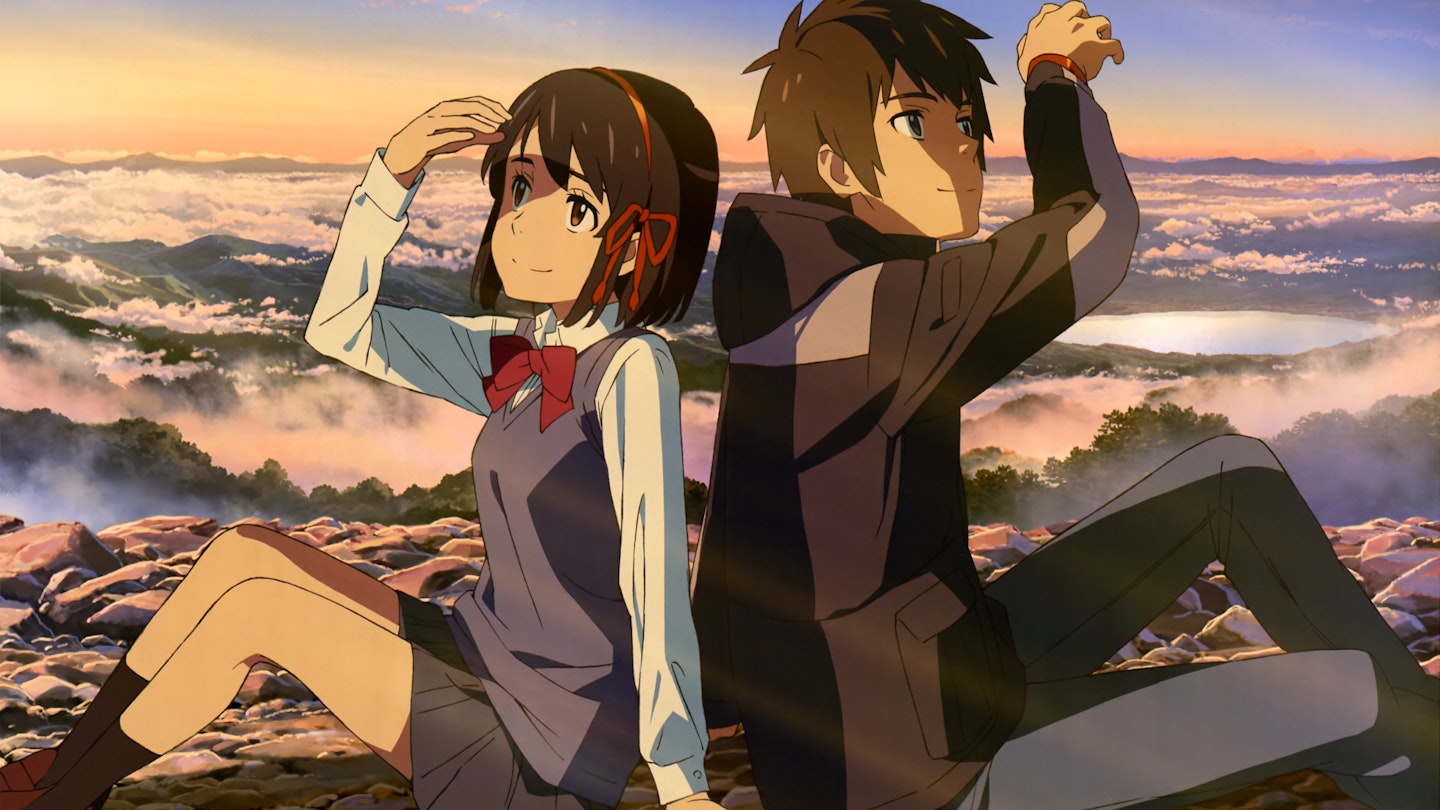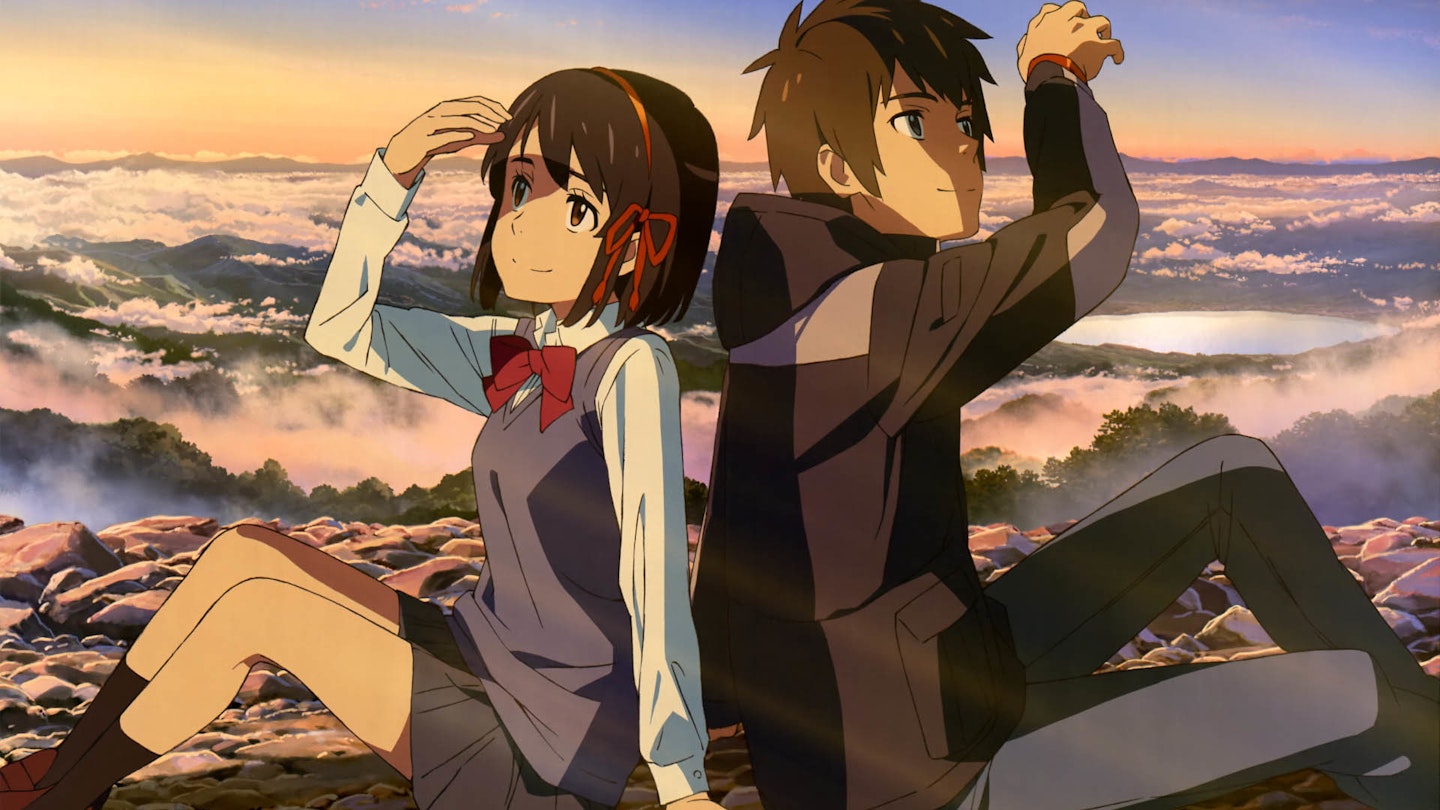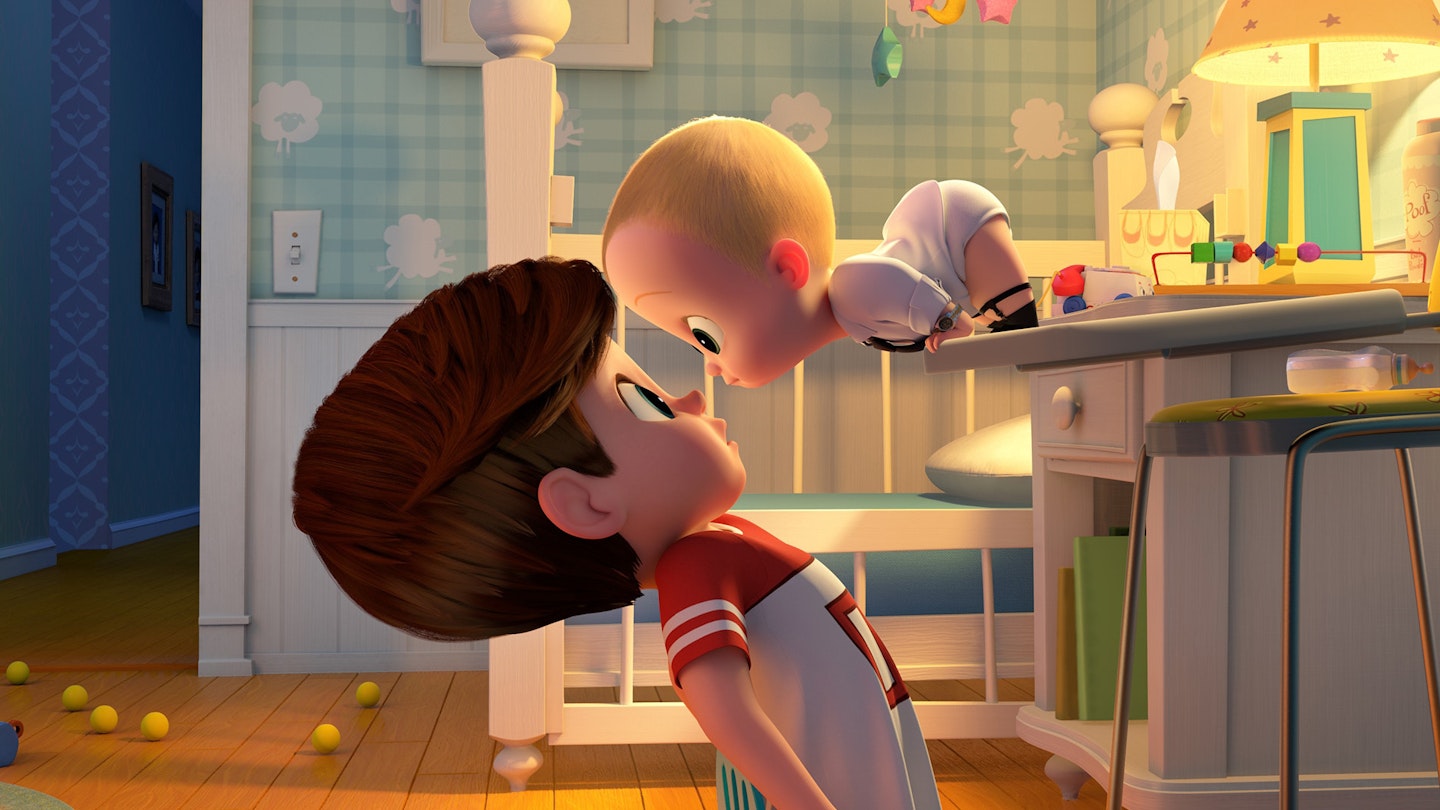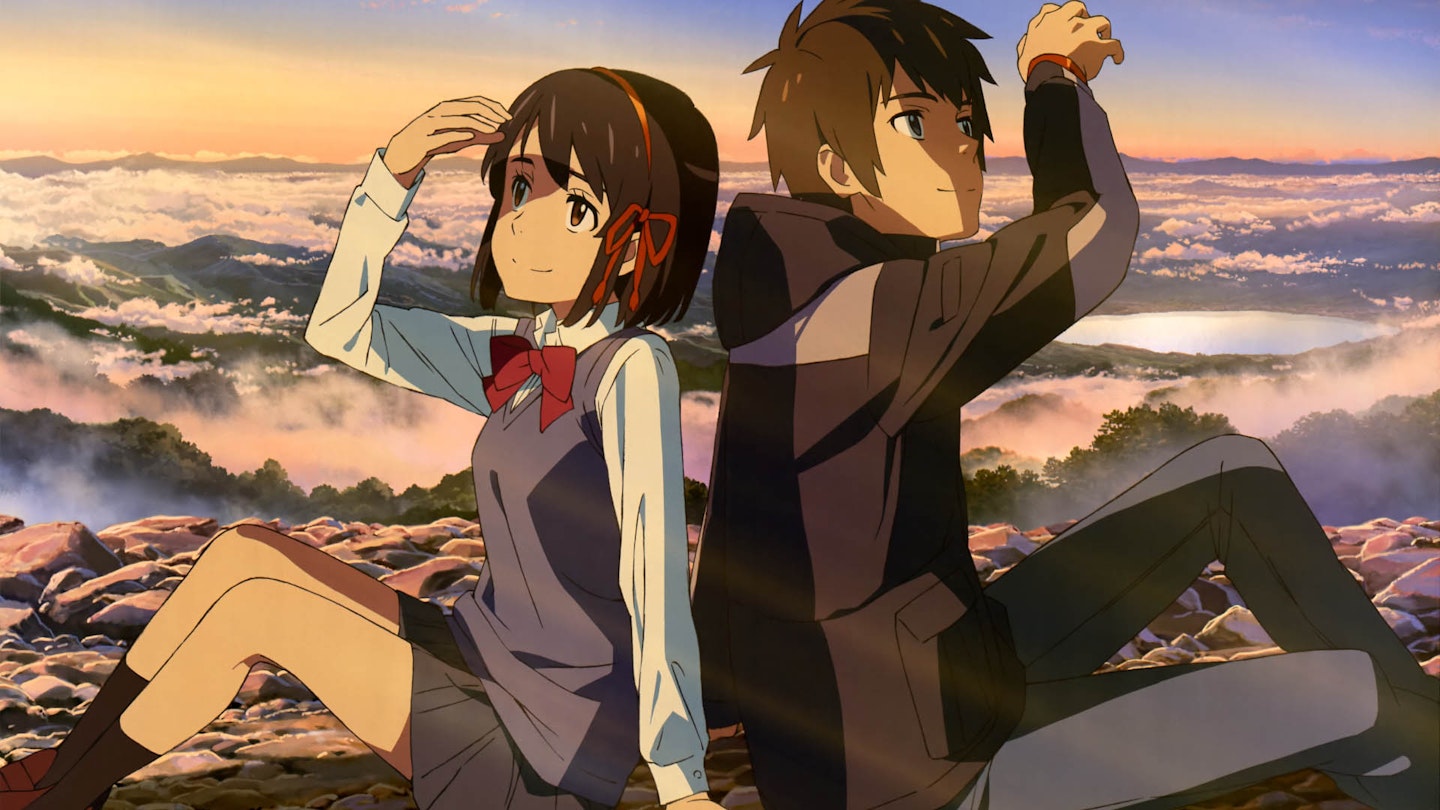
Makoto Shinkai. Get used to that name. Within the next few years, if there is any justice in this crazy universe, it will be as synonymous with culturally transcendent Japanese animation as Hayao Miyazaki is right now. And there’s a good chance he will also be holding an Oscar early next year. Either for Best Animated Feature, or Best Foreign Language Film. Or why not even both?
If any film has the right to be called this decade’s Spirited Away, it’s this one.
Shinkai’s been making movies since 2004, such as 2011’s fantasy-tinged adventure romance Children Who Chase Lost Voices, but his fifth, Your Name, has proven a true breakthrough for the 43-year-old former graphic designer. At the time of writing, his gender-switching meta-romance is on its sixth consecutive week at the top of the Japanese box-office and has earned north of 13 billion yen ($126 million), a level of success for an animator only previously enjoyed by, yes, Hayao Miyazaki. And it’s not just us making comparisons – his countryfolk have already started proclaiming him ‘the new Miyazaki’.
With good reason. Just like the now-retired head of Studio Ghibli, Shinkai exhibits a preternatural attention to detail; every frame of Your Name is a richly teeming composition, whether breathing in the vast sweep of a lush, crater-scarred landscape, tracing the aurora-tailed path of a sky-slicing comet, or focusing on the weaving of threads as they are nimbly braided into colourful cords. Whether blazing with sunlight, or shadowed by storm clouds, the film glows with an inner life that the hard, plastic sheen of CG animation so rarely attains; one awesomely trippy-cosmic sequence is even realised using pastels and chalks.
If you only see one Japanese animated feature this year, see this one, and see it more than once.
And playing out in front of all this delicate artistry is... a J-pop-soundtracked body-swap comedy? For teenagers? Don’t worry, we’re not getting just another Freaky Friday. Or The Hot Chick. There may be a lightness to the film’s early body-switch scenes, with a running gag about teen boy Taki (Kamiki) fondling ‘his’ breasts whenever he wakes up as Mitsuha (Kamishiraishi), but the comedy of biological displacement quickly evolves into an odd kind of long-distance love story, with Taki and Mitsuha leaving each other messages via journals and smartphone diary apps, while also charmingly setting each other rules about what they can do while in each other’s bodies. There’s a unique tension to their relationship. In one sense they are closer to each other than would normally ever be possible, literally sharing lives, yet in another they couldn’t be more separate. No doubt there’s a metaphor here for the simultaneous joys and horrors of adolescence.
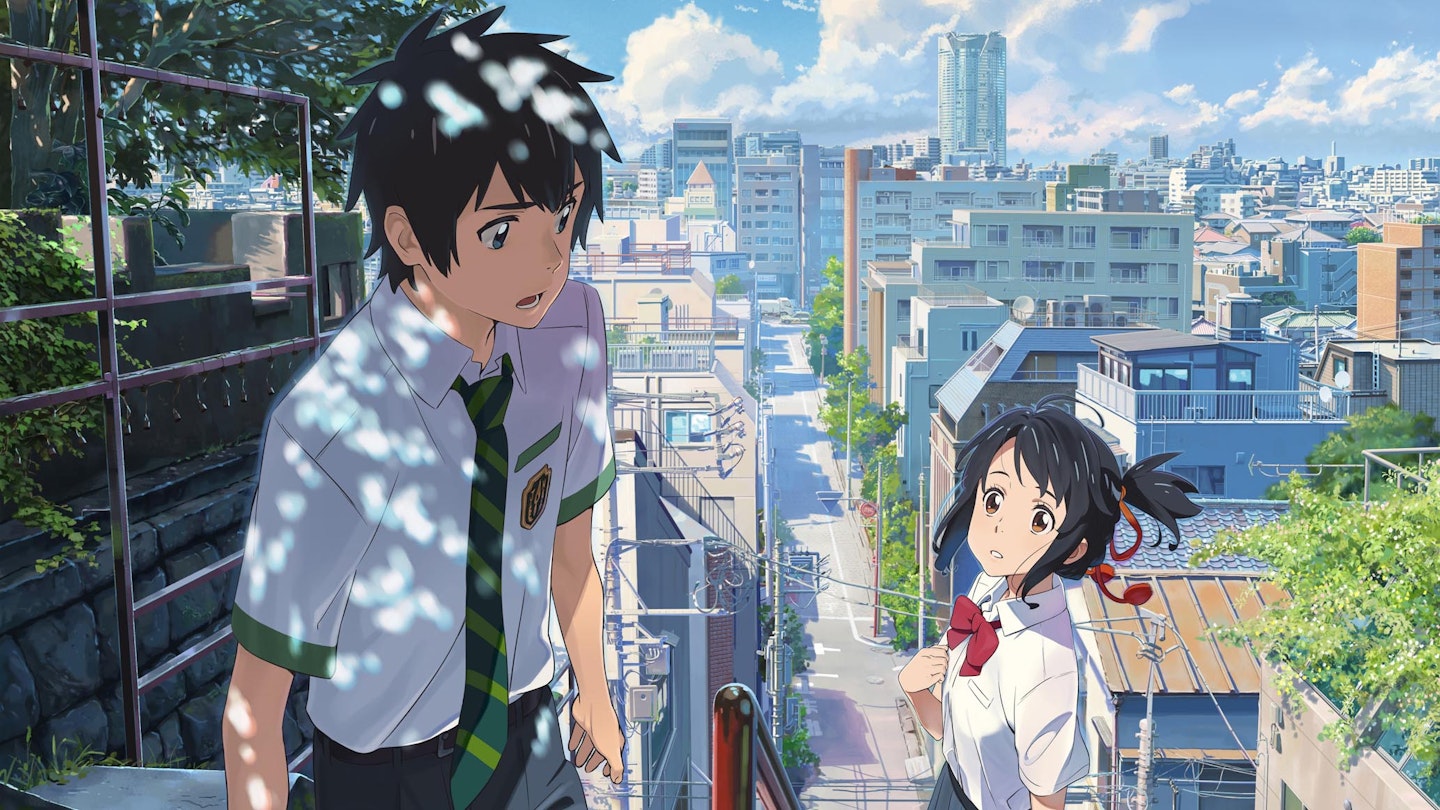
The mystery of their predicament is found less in the reason it’s happening than the revelation of its purpose. There is a bigger story here, one that is fed by Japanese culture’s understandable preoccupation with mass destruction, almost switching sub-genres. To say more would be to deny you the joy of discovering the film’s secrets. So we won’t.
Shinkai’s brazen narrative boldness, his dextrous handling of alternating, equally likeable lead characters, and his mastery of hand-drawn visuals all weave together to form a profoundly gorgeous cinematic experience. If any film has the right to be called this decade’s Spirited Away, it’s this one.
